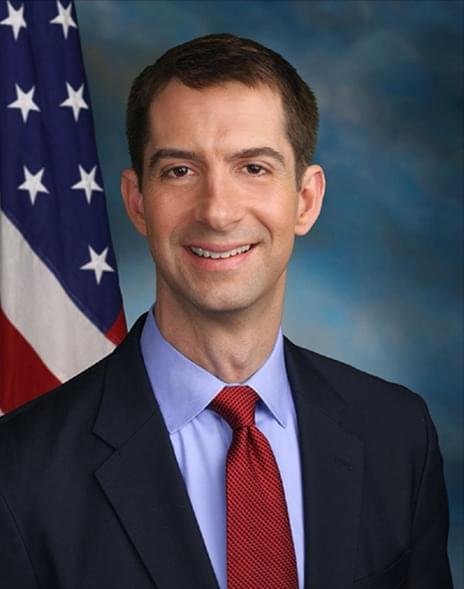Washington, D.C. — Senator Tom Cotton (R-Arkansas), along with seven of his colleagues, today sent a letter to Attorney General Merrick Garland to urge him to investigate cases of American institutions of higher education having ties to the Chinese Communist Party (CCP). In addition to investigating the current cases, the senators asked AG Garland for written responses on how the Department of Justice is working to mitigate the threat the CCP poses to the U.S. education system.
Senators Pete Ricketts (R-Nebraska), Rick Scott (R-Florida), Eric Schmitt (R-Missouri), Cynthia Lummis (R-Wyoming), Joni Ernst (R-Iowa), Marsha Blackburn (R-Tennessee), and Thom Tillis (R-North Carolina) co-signed the letter.
In part, the senators wrote:
“Undisclosed and unmonitored financial relationships between U.S. academia and the CCP are glaring national security risks. Such relationships leave the U.S. vulnerable to intellectual property theft, improper influence, and even espionage. It is imperative that DOJ take additional steps to swiftly address this concern.”
Full text of the letter may be found here and below.
August 5, 2024
The Honorable Merrick Garland
U.S. Department of Justice
950 Pennsylvania Ave., N.W.
Washington, DC 20530
Dear Attorney General Garland,
We write regarding reports that American institutions of higher education (IHEs) are failing to disclose financial ties with the Chinese Communist Party (CCP). Efforts to conceal CCP attempts to influence American students and steal intellectual property threaten our national security.
The Department of Justice (DOJ) has disclosed multiple cases where U.S. universities collaborated illegally with the CCP. On July 16, 2024, the U.S. Attorney’s office for the District of Maryland announced that the University of Maryland paid $500,000 to resolve allegations that it violated the False Claims Act by failing to disclose funding from Chinese companies, including Alibaba. On October 2, 2023, the same office announced that Stanford University paid $1.9 million to resolve allegations related to faculty’s ties with the CCP. In both cases, the universities knowingly defrauded federal agencies critical to national security.
Undisclosed and unmonitored financial relationships between U.S. academia and the CCP are glaring national security risks. Such relationships leave the U.S. vulnerable to intellectual property theft, improper influence, and even espionage. It is imperative that DOJ take additional steps to swiftly address this concern.
For those reason, please answer the following questions by September 2, 2024.
Has the frequency of IHEs committing False Claims Act violations as result of failing to disclose funding from CCP-affiliated entities increased since January 1, 2020?
What is the current assessment of the threats posed to American students and federal research initiatives by CCP involvement?
What steps does the DOJ take to mitigate CCP attempts to influence the U.S. education system?
How does the DOJ work with the rest of the interagency, including the Department of Defense, to evaluate and mitigate these threats?
Thank you for your prompt attention to this important matter.
Sincerely,

